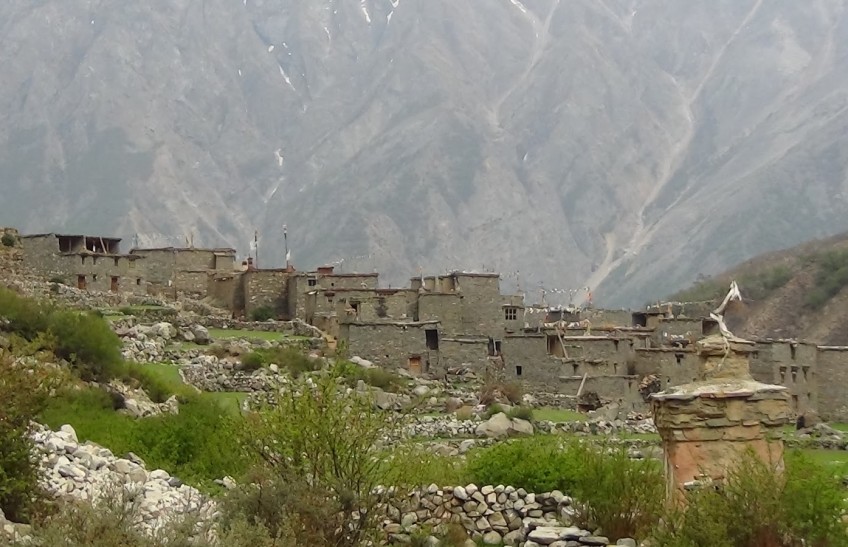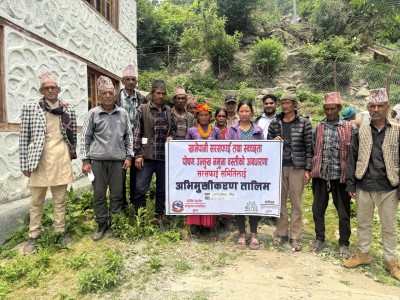Past Projects
Orientation Training Program on Justice and Women's Rights for Ward and Community-Level Mediation Committees of Namkha Rural Municipality Humla.

1. Background and Rationale
Under Nepal's federal governance system, local governments play a key role in providing justice and resolving disputes at the grassroots level. Ward-level mediation committees are central to this process, addressing civil disputes, family issues, land conflicts, and local disagreements through consensus-based methods.
However, several challenges limit their effectiveness:
- Insufficient legal literacy, mediation skills, and training in gender-sensitive dispute resolution.
- Low participation of women, both as committee members and service seekers.
- Limited awareness among women about their legal rights and available services.
Namkha Rural Municipality Context
Namkha Rural Municipality, located in the remote Humla District of Karnali Province, faces major challenges due to its difficult geography, poor service delivery infrastructure, and deeply rooted social barriers. Women, in particular, experience significant hurdles—social, economic, and cultural—that restrict their access to justice and participation in decision-making.
Key facts:
- Humla has a population of around 55,000 (2021 census), with women comprising about 49.85%.
- The female literacy rate is only 52%, far below the national average of 65.95%.
- A 2019 National Human Rights Commission report highlighted widespread issues like child marriage, domestic violence, and gender-based violence.
- Women's involvement in mediation committees remains minimal due to lack of confidence, information, and societal support—challenges even more pronounced in Namkha.
2. Program Objectives
This program aims to build the capacity of local mediation committee members and stakeholders through orientation and training on:
- Justice and legal processes
- Women’s rights
- Child marriage prevention
- Women’s health
3. Target Participants
Each ward-level orientation will engage 40 participants from key community groups:
- Ward Chairpersons and Members
- Mediation Committee Members
- Female Community Members
- Female Health Volunteers
- Ward Office Staff
4. Program Activities
A two-day orientation program will be held in each of the five wards. Training sessions will cover:
- Session 1: Justice and Mediation
- Session 2: Women’s Rights
- Session 3: Women’s Health
- Session 4: Child Marriage
Training methods will include:
- Interactive presentations
- Group discussions
- Case studies
- Q&A sessions
5. Expected Outcomes
Following the training, the program expects:
- Enhanced understanding of judicial processes among local mediators.
- Greater awareness of women’s rights within the community.
- Improved knowledge of women’s health and the negative impact of child marriage.
6. Monitoring and Evaluation
To ensure effectiveness and accountability:
- Participant feedback will be collected before and after the training.
- Each session will be evaluated individually.
- A final report will include photos and testimonials.
- Program implementation will be monitored in coordination with the rural municipality.
7. Sustainability and Follow-Up
This initiative will empower local committees and foster long-term partnerships. Training materials will be provided to ward offices for continued use. Further workshops and in-depth discussions may be organized in collaboration with Namkha Rural Municipality as needed.

